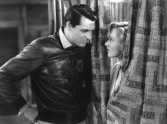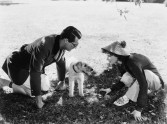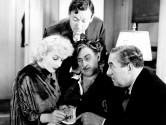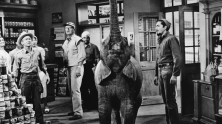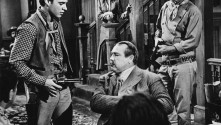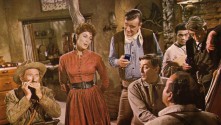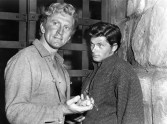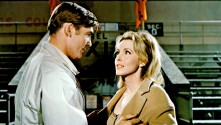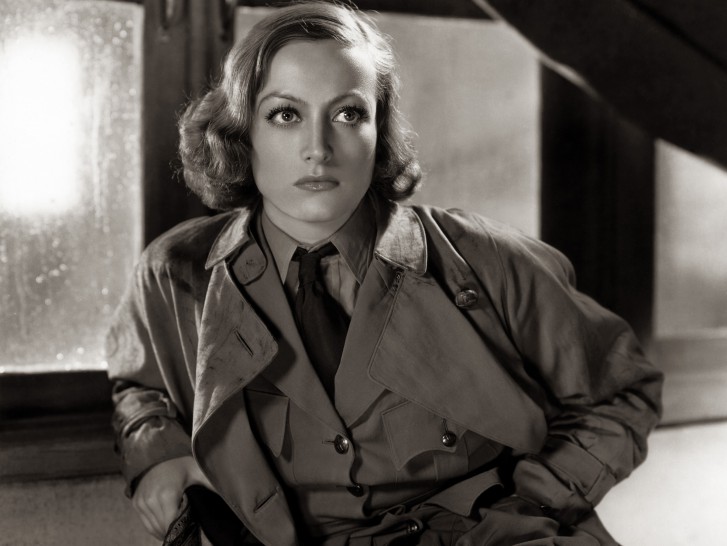
In the throes of WWI, Bogard (Gary Cooper), a bomber pilot, comes to live in the ancestral home of Diana (Joan Crawford) and falls immediately in love with her, much to the dismay of her fiancé Claude (Robert Young) and brother Ronnie (Franchot Tone). The skirmish for Diana’s affections that ensues is the heart of Today We Live,a melodrama based on William Faulkner’s shortstory “Turnabout” that finds Hawks in more nuanced narrative territory than usual. However, alongside the story’s requisite tragedies and combat scenes (for which the director recycled aerial footage from Howard Hughes’ Hell’s Angels and his own The Dawn Patrol), there is a familiar thread of fraternal communion whereby mutual respect is waged through competition and bravado. Bogard considers his work in aviation to be more courageous and dignified than Claude and Ronnie’s mysterious missions with the Navy, and Today We Live’s strongest scenes revolve around the men enlightening each other of their toils firsthand, devising impromptu tests of bravery while danger lurks in the immediate background. And though Hawks objected to MGM’s insistence on Crawford’s inclusion in the narrative, he ultimately finds ways to complicate her role as a put-upon woman of the war—most notably in the vaguely incestuous intimacy cultivated around the Diana/Ronnie relationship.
Part of film series
Screenings from this program
Gentlemen Prefer Blondes

His Girl Friday

The Big Sleep (pre-release version)

A Girl in Every Port

The Cradle Snatchers / Paid to Love

Fazil

Fig Leaves

Man's Favorite Sport?

The Crowd Roars

Today We Live


